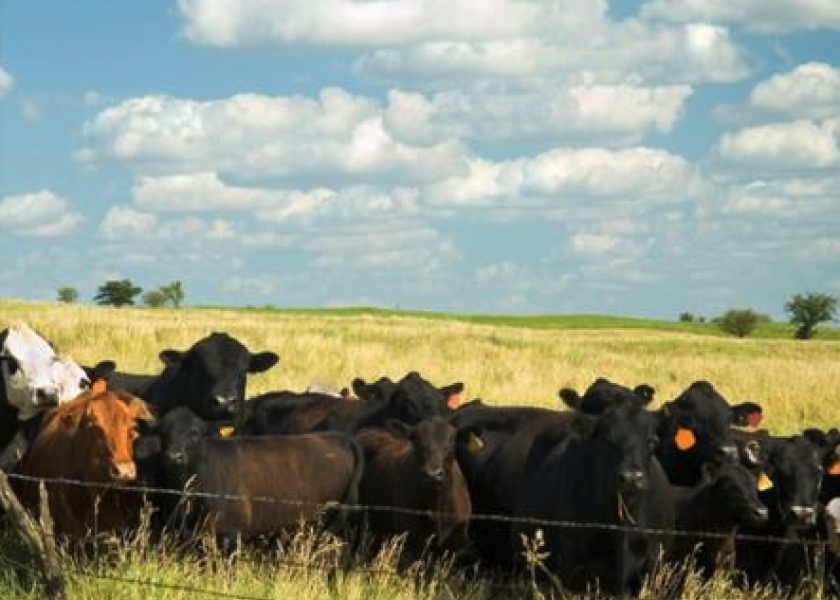Senator Fischer: America's Beef Producers Are Not Villains

Editor's Note: The opinions expressed in this commentary are those of Senator Deb Fischer, and do not necessarily represent the views of Drovers or Farm Journal.

On behalf of America’s cattle producers, Gina took great offense to those false statements which sparked this campaign. As she said, it was one more “punch in the gut to America’s cattle producers.” So, she decided to pen a letter to Ellen herself.
She recalled the memories of her father who was tough as nails, yet shed tears when his favorite cow died of old age. She wrote of her eight-year-old son who once spent the night in their barn to try to help nurse an injured calf back to health. And she remembered her husband who, as those severe floods raged through their farm last March, risked his life to save a calf in danger.
This is what the trendy food fads and campaigns fail to realize: feeding the world is more than a job. It’s an identity and a way of life for many Americans. It’s generations of hardworking farmers, ranchers, and ag producers like Gina who have been nurturing and regenerating our land for hundreds of years.
Still, anti-meat crusaders – equipped with faulty logic and cherry-picked statistics that villainize beef producers – think they wear a crown of moral authority.
A recent Bloomberg editorial beckons Americans to “curb their appetite” and “give up meat” claiming livestock are the boogeyman of greenhouse gas emissions. But if you look at the facts, they tell a completely different story.
New analysis from the USDA’s Agricultural Research Service finds that beef cattle produce only 3.3 percent of the total U.S. greenhouse gas emissions (GHG). By comparison, the transportation and electrical industries generate 56 percent of our nation’s total GHG emissions. In fact, researchers at Virginia Tech found that if every person in the country suddenly went vegan, GHG emissions would drop a mere 2.6 percent in the United States, while our national diet would suffer from insufficient nutrients.
Livestock regenerate the land, allowing us to produce food on marginal surfaces and provide much-needed sustainability to our global food system. Those "meatless Mondays" would only increase use of synthetic fertilizer and lead to higher rates of soil erosion.
For decades, professional activists have also linked eating to developing cancer and heart disease. But according to new research from the Annals of Internal Medicine, that connection was out of line too.
This study featured in The New York Times is among the largest evaluations in history. The research found that if health advantages exist from eating less beef or pork, it’s insignificant and evidence is insufficient to urge individuals to change their diets.
Other researchers at Penn State University found that beef contributes to a heart-healthy lifestyle. People who consume four ounces of lean beef every day as part of a nutritious diet maintain healthy cholesterol levels. A three-ounce serving of cooked lean beef also contains more than half of your daily value of protein. At the same time, it provides consumers with healthy sources of iron, B-6 and B-12, zinc, and many other essential nutrients.
What’s more, a popular plant-based meat alternative company recently announced it would take down misleading health statistics featured on their website, after critics called for evidence for their claims.
Beef only contains one ingredient: beef. While plant-based meat alternatives often contain a long list of ingredients commonly found in a variety of processed foods like magnesium carbonate, which is also in fire-extinguishing compounds, and propylene glycol, commonly used in e-cigarettes.
Does that sound like a healthier option to you?
The heart of America beats in the same rhythm as agriculture. Nurturing and healing the environment through responsible range management practices has always been at the core of what our ag producers do – a cherished responsibility passed through generations.
Critics of beef are quick to forget our nation’s ag producers are constantly innovating and their livelihoods are forged on managing our natural resources. Compared to 1977, our nation’s cattle ranchers produce the same amount of beef for our world, and they do so with 33 percent less cattle.
Gina admitted she never thought that anyone would read her letter. It now has over 18,000 reactions and has been shared over 15,000 times on Facebook.
There may be loud voices from celebrities and activists proclaiming their “green” agenda, but there are thousands of men and women across the country who actually live on the land and practice conservation of our natural resources every day.
Our nation trusts a small percentage of our people with a sacred responsibility: feeding and nourishing the world. Let’s keep that trust in the hands of those who know best how meat gets to the family table and the positive role it plays in our lives.







